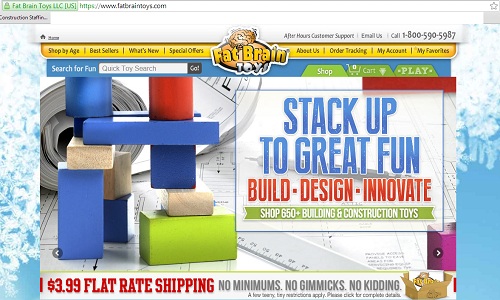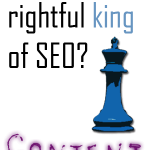
How to Negotiate When Buying or Selling Domain Names
Negotiation skills are always very important regardless of what you’re selling or buying – a piece of land, a vehicle, a domain name or anything else. Just like any business, you require an effective negotiation strategy when buying / selling domain names too.
First and foremost, you must approach the domain price negotiation process with a lot of seriousness, just as you would in case of any business activity. In this short article, I’ll take you through some of the important points related to domain negotiations. The idea is to help you build and hone your domain negotiation skills. Let’s begin!
Make sure that you understand the domain well before buying / selling it
When you’re in the marketplace for buying / selling a domain name, you should be able to ask and answer all the right questions in order to do it profitably. In case the domain name already has an associated website, it’s not necessary that it’ll enhance the domain’s value.
You’ll need to get acquainted with the website’s present profitability, its assets and liabilities, revenue model and current place in the industry.
 (fatbraintoys.com Facebook page)
(fatbraintoys.com Facebook page)
Having an appropriate social media account linked to the domain name also adds significantly to its value. Any off-line business that expands its operations online, would like to have social media accounts that are closely related to their web presence. For instance, if you invest in kids101.com, it’ll be better if you create ‘kids101’ profiles on both Twitter and Facebook to increase your chances of selling the domain name at a good price. See the example given above of the fatbraintoys.com’s website and facebook page.
Be clear about how important is the domain name for you and what you’re willing to pay for it
The amount that you’re willing to pay for a domain name will depend on several different factors. If the domain name is for a seasoned off-line business that you’ve been planning to take online for quite some time, it may mean quite a lot to you and the business.
On the other hand, if you’re a newbie in the domain flipping world, you may not have sufficient funds to invest in an expensive domain name. (Learn about the challenges commonly faced by entrants into domain flipping business)
The trick is to bargain as hard as possible, without letting the seller get even a hint about your desperation or finances. This is all the more applicable in case of highly unique, specific and must-have domain names that are exactly the same as the business names.
Keep in mind the domain name’s development potential
You need to ask yourself some very important questions related to the concerned domain name’s development potential:
- Will you be able to create a brand around the domain name?
- Will it possible to create an instantly recognizable website around the domain name?
- Have you carried out proper keyword research before deciding to invest in a domain?
- Is the domain name in violation of or in conflict with any of the well-known and/or registered trademark/s?
Having carried out proper keyword research before buying a domain name can sometimes provide you with instant search engine rankings as soon as the website goes live. (Learn about the top 3 strategies for choosing the right domain name)
Talking about the trademarks’ aspect, buying a domain name that violates or is in conflict with any of the popular trademarks radically reduces the domain name’s value.
You can carry out at check on the registered trademarks at the United States Trademark and Patent Office website. In the event that your website will not be U.S. based or if you don’t stay in the U.S., check with the trademarks and patent office in your country. Majority of countries have their respective trademarks and patent related online databases.
Initial contact with the owner of the domain name
The initial contact with the owner of the domain name will play a key role before you even reach the negotiation phase. Your initial email or message should read something like:
Dear (name of the seller),
I’m interested in buying your domain name – (xyz.com) and would like to offer you (your lowest bid price) for it. Please feel free to call me on (your phone number) or email me at (your email address) if you’re keen to sell it at the offered price, or if you’d be interested in negotiating the price.
Kind regards
(Your name, phone number and email address)
Please keep in mind that even though your lowest bid price should be lower than what you’re willing to pay, it shouldn’t be so low that the seller feels insulted. Your email may get trashed without even a reply in that case. If that happens, you’ll also close the other possible doors of bringing the seller to the negotiating table.
However, by keeping such buffer between the lowest bid price and the price you have in mind, you give yourself enough room to negotiate with the domain name seller.
In the event that you have deep coffers and are desperate to acquire the particular domain name, the deal can be closed almost instantly by making a very handsome initial offer. But please note, the offer should be good enough to get the immediate attention and consent of the domain name owner.
Please also keep in mind that this email or message is your only chance of getting the domain owner’s attention, and hence you should make it count.
Expedite the process by adding a sense of urgency to it
This can be done using several different tricks such as mentioning that your boss has asked you to get a domain name within the next 5 days! Or that you have a $ 3000 budget and would like to acquire a handful of domain names, including the seller’s, within the next 8- 10 days.
The chances are high that the domain name seller may respond quickly out of fear that he/she may lose the deal. In fact, many prospective sellers even agree to very low prices once they get to know that you have a soon-to-expire deadline.
Final Word
The above-mentioned guidelines provide only a loose structure to help you hone your domain price negotiation skills. Eventually, your success in this field will be determined by your own individual learnings. Apart from that a lot will depend on how effectively and for how long you’ve been applying various domain flipping strategies in your dealings.



